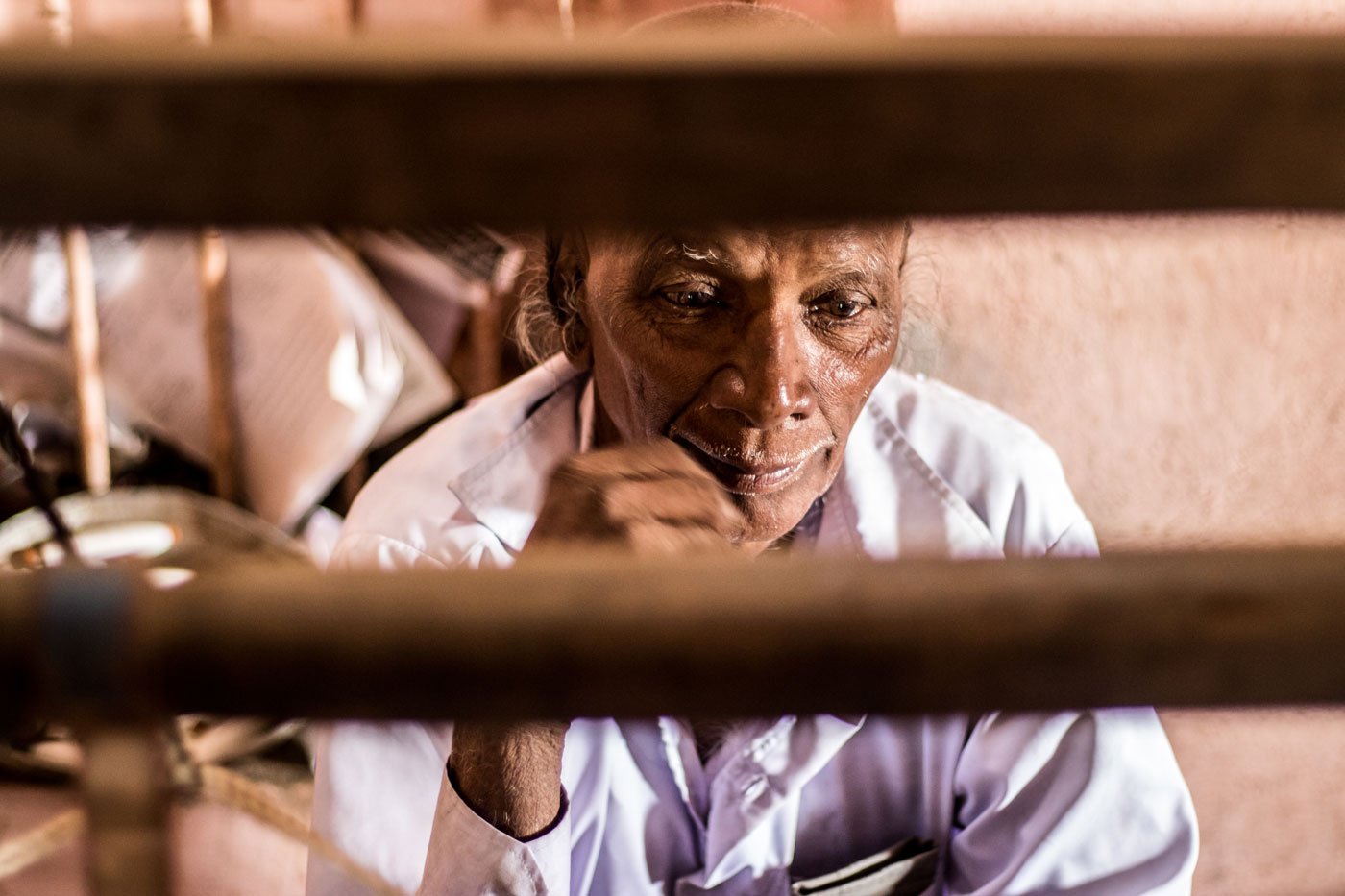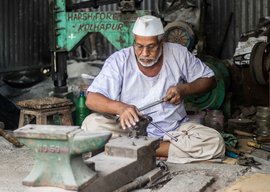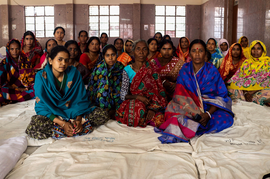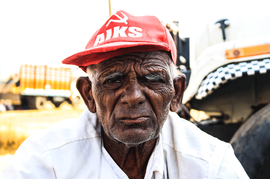At this time, Shamshuddin Mulla would have been in the fields – repairing engines and pumps.
He did step out on March 26, the second day of the lockdown when a despairing farmer from Sulkud village [in Kolhapur district’s Kagal taluka] came to his house on a bike. “He took me to his farm, where I repaired his diesel-engine water pump set.” Had Shamshuddin not done so, the farmer would have found it difficult to water his sugarcane.
This is only the second time the 84-year-old master mechanic – who began working at the age of 10 – has taken a break from mending engines in 74 years. The first time was around January 2019, after he underwent an angioplasty.
Shamshuddin has in seven decades repaired more than 5,000 engines – borewell pumps, mini- excavators, water pumps, diesel engines, and more – and raised this skill to the level of an art. His home in Barwad village, of Chikodi taluka in Karnataka’s Belagavi district has for long been like an SOS centre for farmers struggling with their machinery. In his peak season in normal years – March, April and May – he would have repaired, he estimates, 30 engines of various kinds, earning at least Rs. 500 a machine. That season stands wrecked by the lockdown.
His family now lives on the roughly Rs. 5,000 he made from repairing eight engines in February and early March – and the free rations of five kilograms each of foodgrain announced by the government.
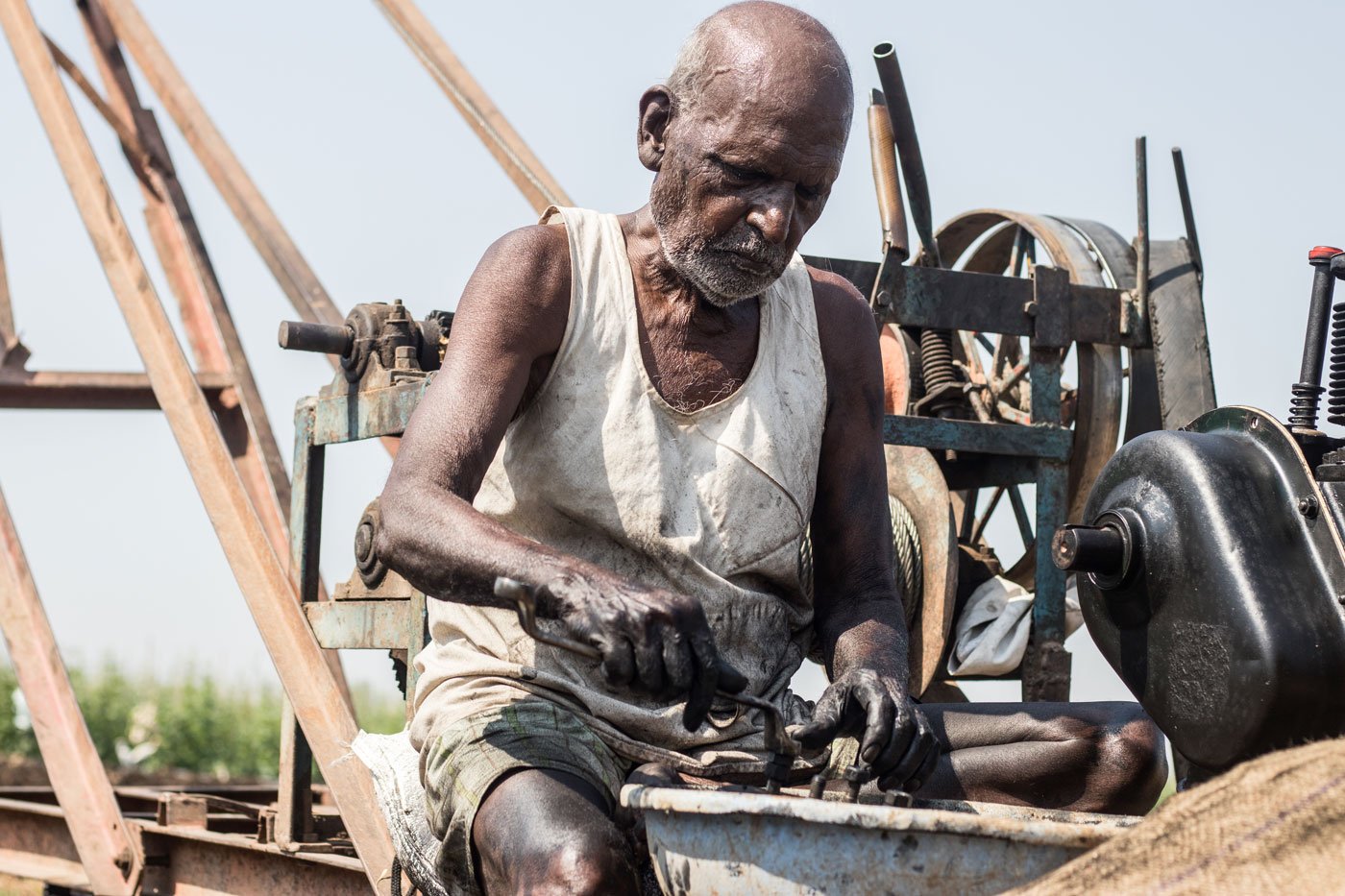
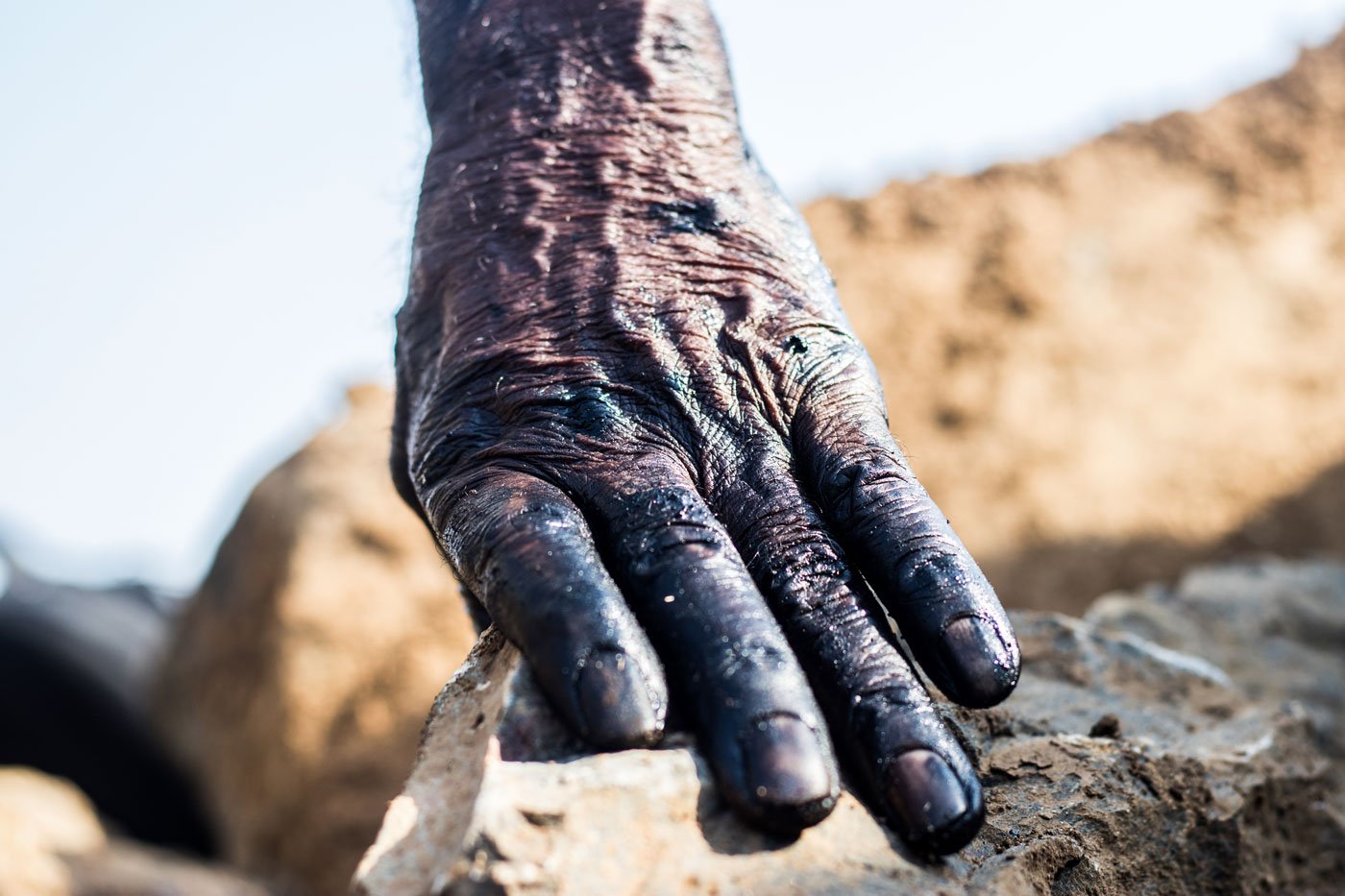
Shamshuddin Mulla repaired thousands of engines in the last 70 years; he hasn't repaired a single one in the lockdown. "I have lost at least Rs. 15,000 in these five weeks"
After the farmer from Sulkud came to his house on a bike recently, three more farmers approached Shamshuddin – bringing defective engines with them – but had to return, their problems unresolved. “I don’t have the required materials and all of Kolhapur city’s shops are now closed,” he told me on the phone.
Two months ago, along with his wife Gulshan, who is in her 70s, and son Isaq, in his mid-50s, Shamshuddin cultivated sugarcane on their two-acre plot. But water for agriculture, even in normal times, is often released at odd hours (sometimes, 2 a.m. in the morning) and the supply can be erratic. And so he has to worry about venturing out to the farm, though it is nearby because he is always in fear of a police beating. The fate of this crop is very uncertain.
Nor has Shamshuddin repaired a single engine or any other machine in roughly 40 days since the lockdown. He has already lost, he estimates, “at least Rs. 15,000 in these five weeks.” And “I have never seen anything like this (the pandemic and lockdown).” He remembers the outbreak of plague in rural Kolhapur – he was just eight at the time – where his family was then based, in Pattan Kodoli village of Hatkanangle taluka of that neighbouring district in Maharashtra.
“During those days we were asked to leave our homes and stay in the fields. Today we are asked to stay at home,” he says, laughing.
*****
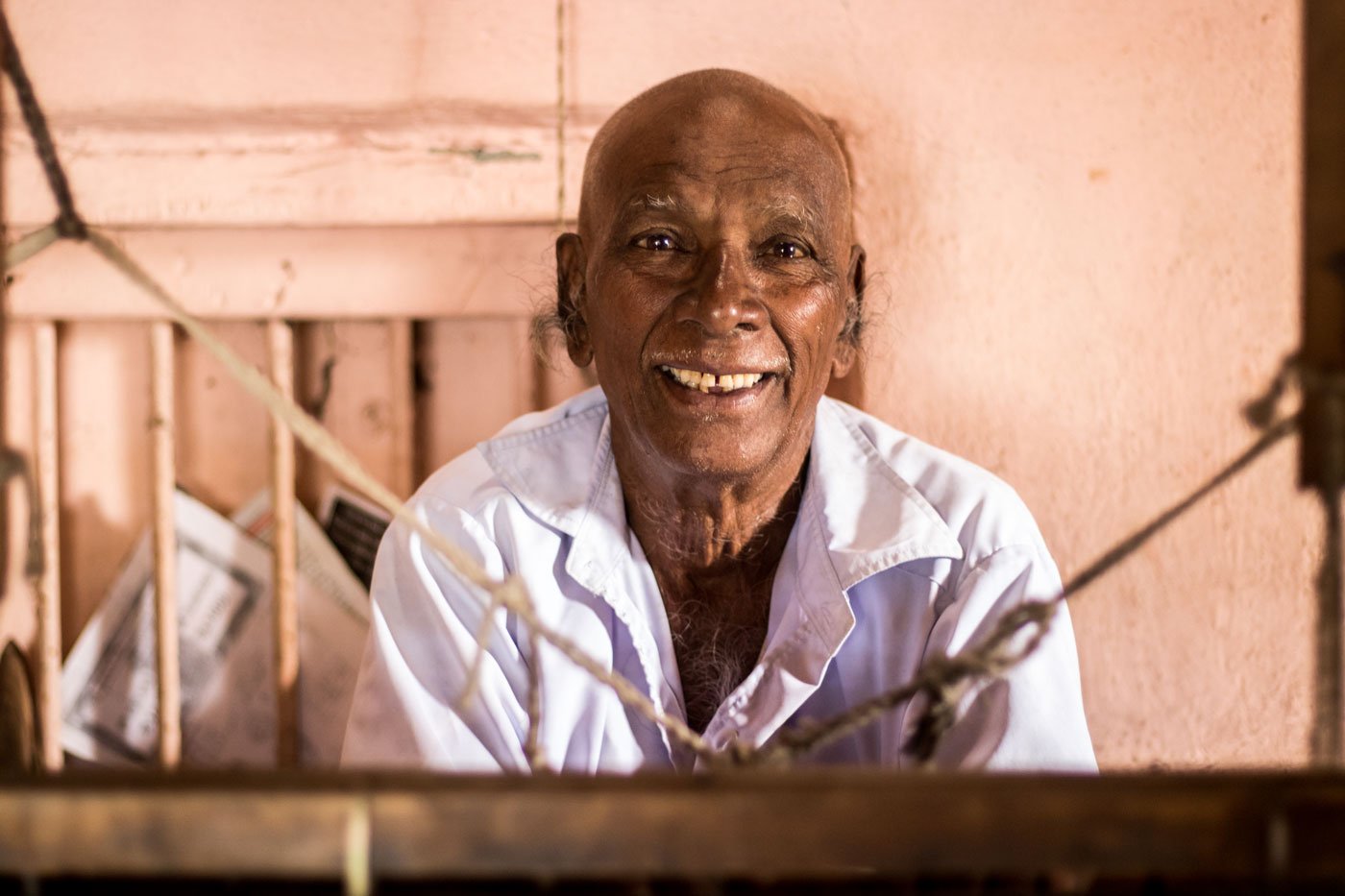
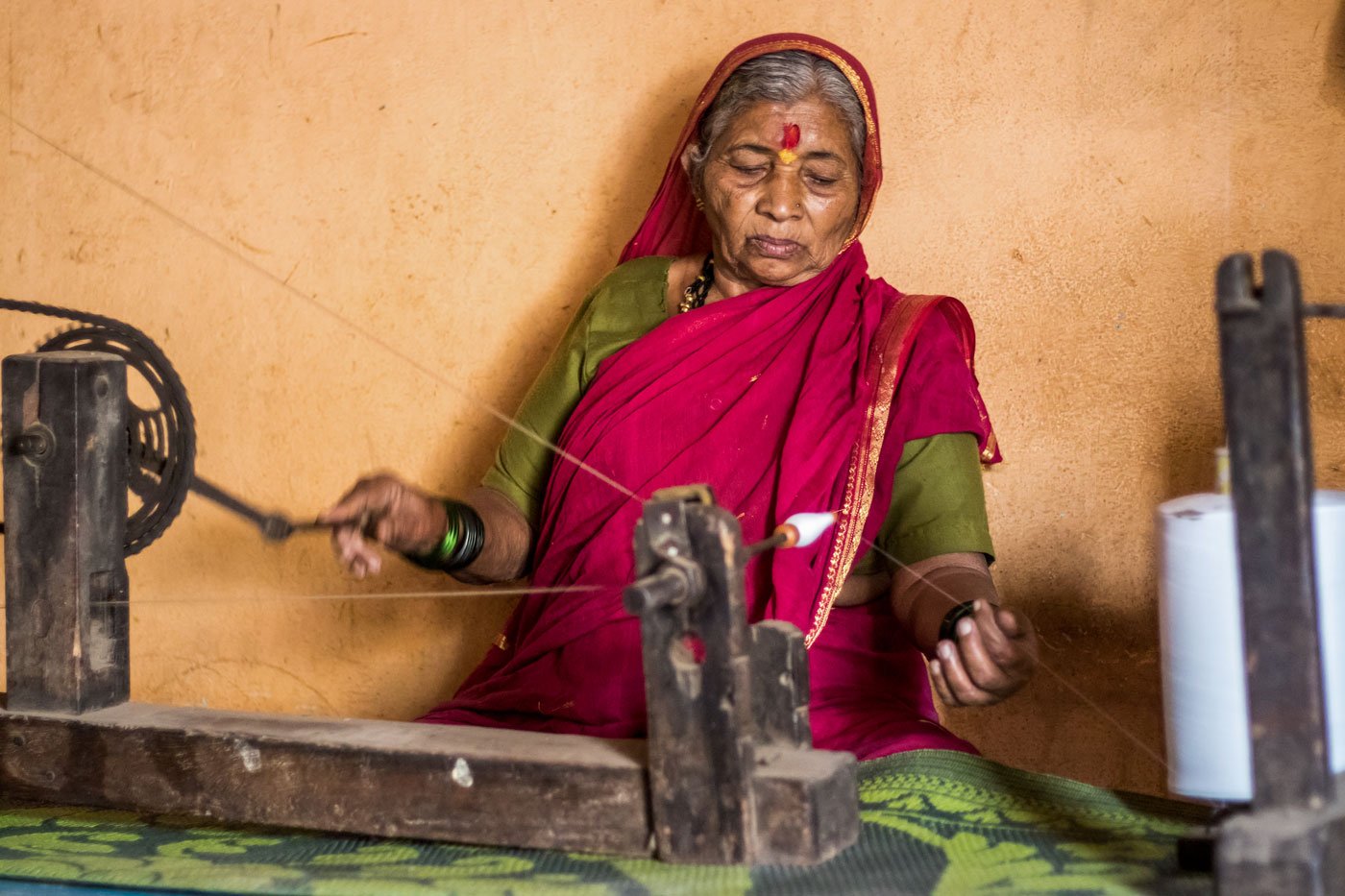
Vasant Tambe retired as a weaver last year; for 25 years, he also worked as a sugarcane-cutter on farms. The lockdown has rocked his and his wife Vimal's fragile existence
At 83, Vasant Tambe still works as a sugarcane-cutter within a two-kilometre radius of his home in Rendal village of Kolhapur’s Hatkanangle taluka. His main earnings though, came from another occupation altogether. He was one of the most skilled handloom experts in this region, till he retired as Rendal’s oldest weaver in 2019. In his estimate, he has woven over 100,000 metres of cloth in a career spanning over six decades.
His brilliance as a weaver did not mean he could always live off that struggling occupation. For the past 25 years, he had to also put in several hours as a cane-cutter on the farms of others and on the one-acre he owns jointly with two brothers. The lockdown has rocked his fragile existence.
“In three hours (in normal times) I manage to cut 10-15 molya [bundle of roughly 200 kilos each],” he says, about working on the farms of others. For this, Vasant gets fodder worth Rs. 100 – which he calls his daily wage – for his buffalo and its redku (calf). Even at this age, he carries the fodder home on his bicycle. In normal times, he would leave home at 6 a.m. every day, to return by 2 p.m.
“The last I cut sugarcane was on March 31,” says Vasant. Which means he has lost 32 days of cutting cane or the equivalent of Rs. 3,200 in fodder. But the trail of disaster began long before that date.
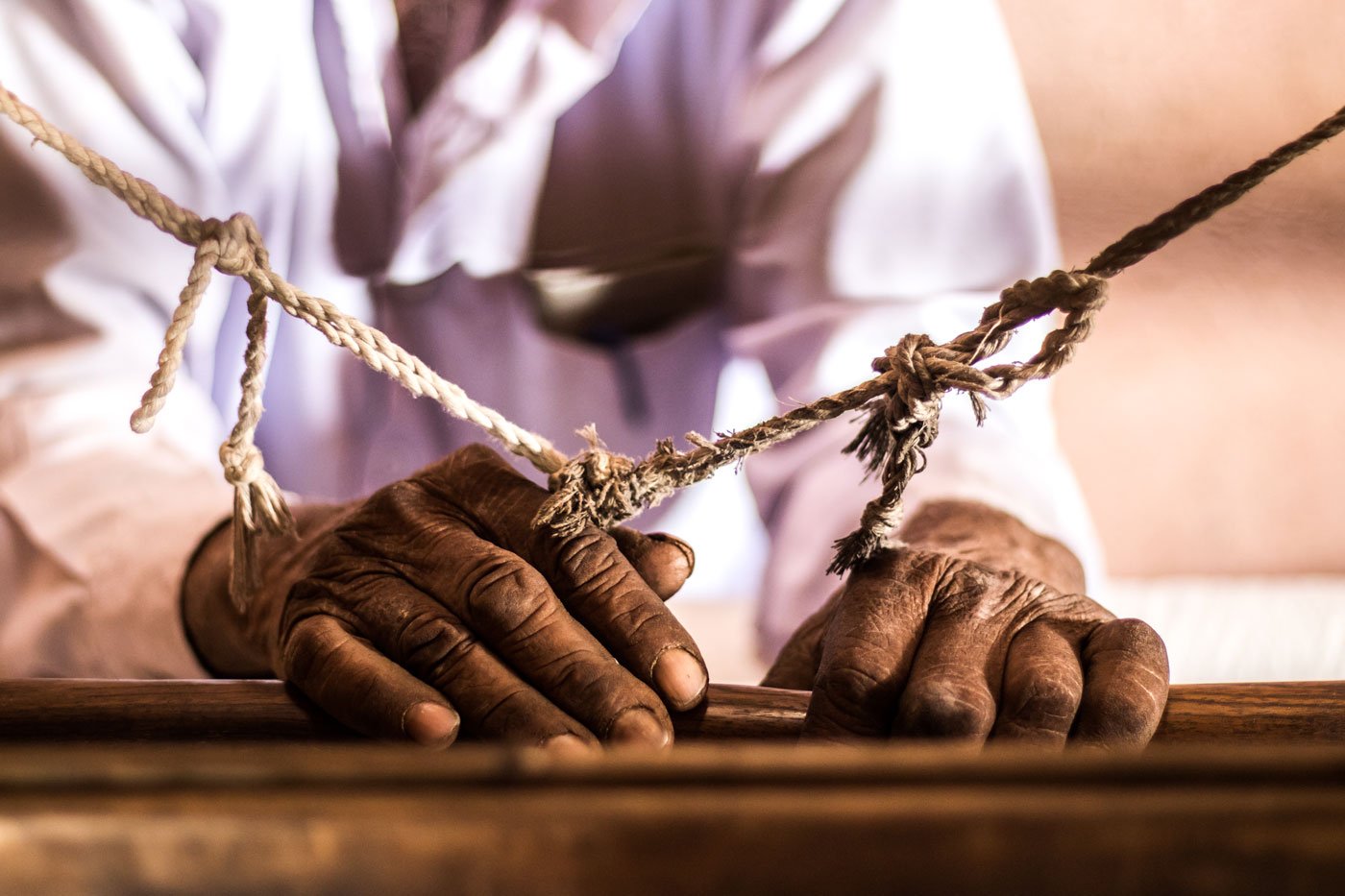
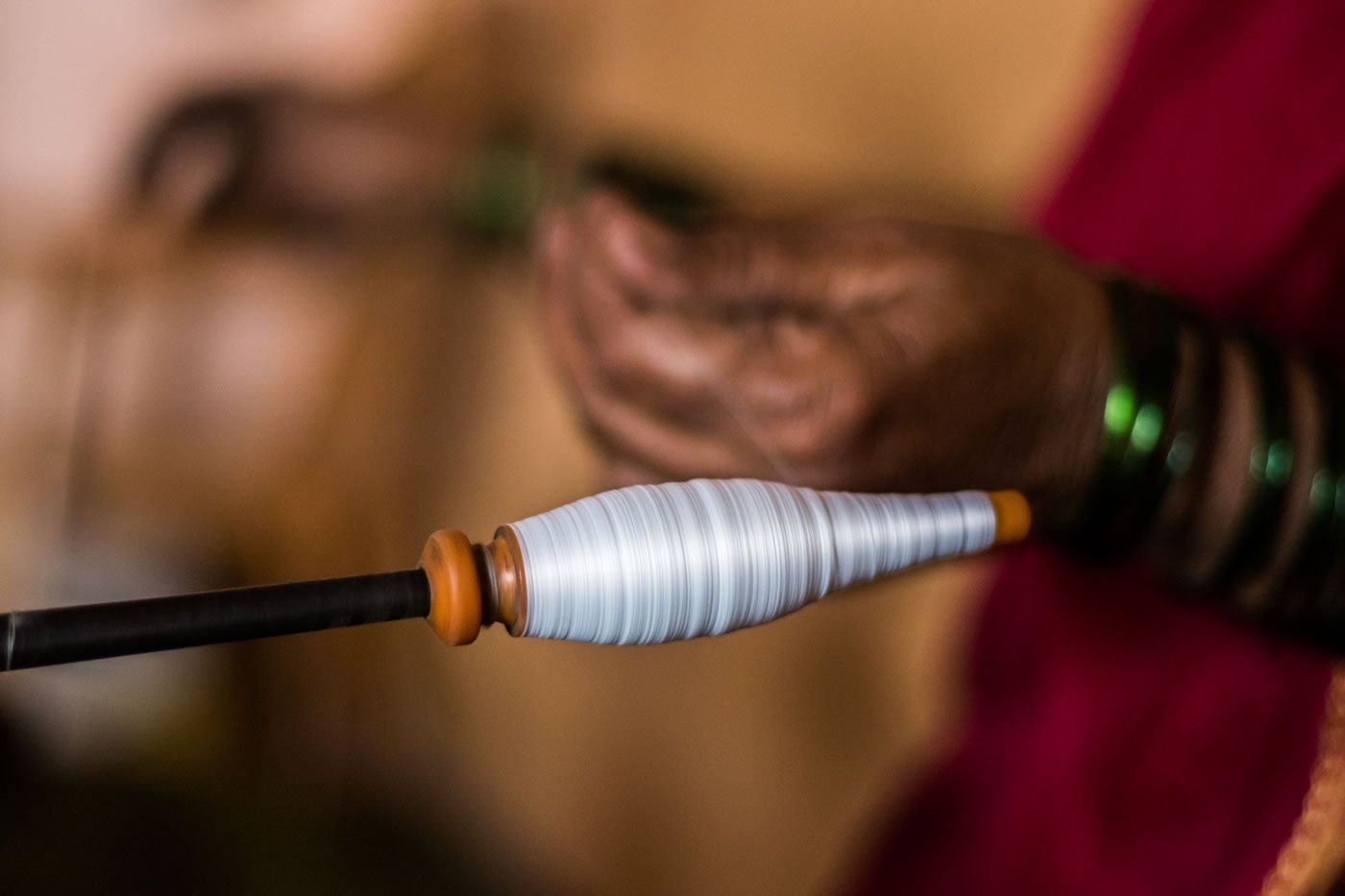
Before he retired, Vasant was one of the most skilled weavers in Kolhapur's Hatkanangle taluka. Vimal would wind the weft yarn on a charakha (right) for him to weave
The August 2019 floods ruined 60 per cent of the sugarcane, and all the jowar he and his brothers had cultivated on their one-acre. He got Rs. 2,875 for each of the seven tons he harvested from his 0.33-acre share. (The preceding year, he had harvested 21 tons from the same third of an acre). “Somehow we will have to live on the Rs. 20,000 from the sale of those seven tons [for which he received the payment only this March] for a year now.
Vasant and his wife Vimal, 76, were unable to quickly access the free rice announced in the government’s package of March 26. On April 2 – they have a ration card – the couple picked up 6 kilograms of wheat and 4 kilos of rice at Rs. 3 and Rs. 2 a kilo respectively, from their regular ration shop. It was only about 10 days later that they received the free 5 kilos each of foodgrain.
Both husband and wife are Dhangars – listed as a Nomadic Tribe in Maharashtra. Both receive a monthly old-age pension of Rs. 1,000, as do Shamshuddin and Gulshan. Vasant too recalls the plague that shook rural Kolhapur during British rule, when he was a boy. “A lot of people died during that time. Everyone was asked to leave their homes and go outside the village,” he remembers.
The lockdown comes barely a year after Vasant retired from weaving, his primary occupation – after spending more than 60 years mastering it. “ Vai jhala ki [I am getting old now]. Weaving takes a lot of physical effort. It’s like walking every day from Rendal to Kolhapur (27.5 km),” he says, and breaks into laughter.
And then, more sombrely: “In my entire life, I have never seen a crisis like this.”
*****
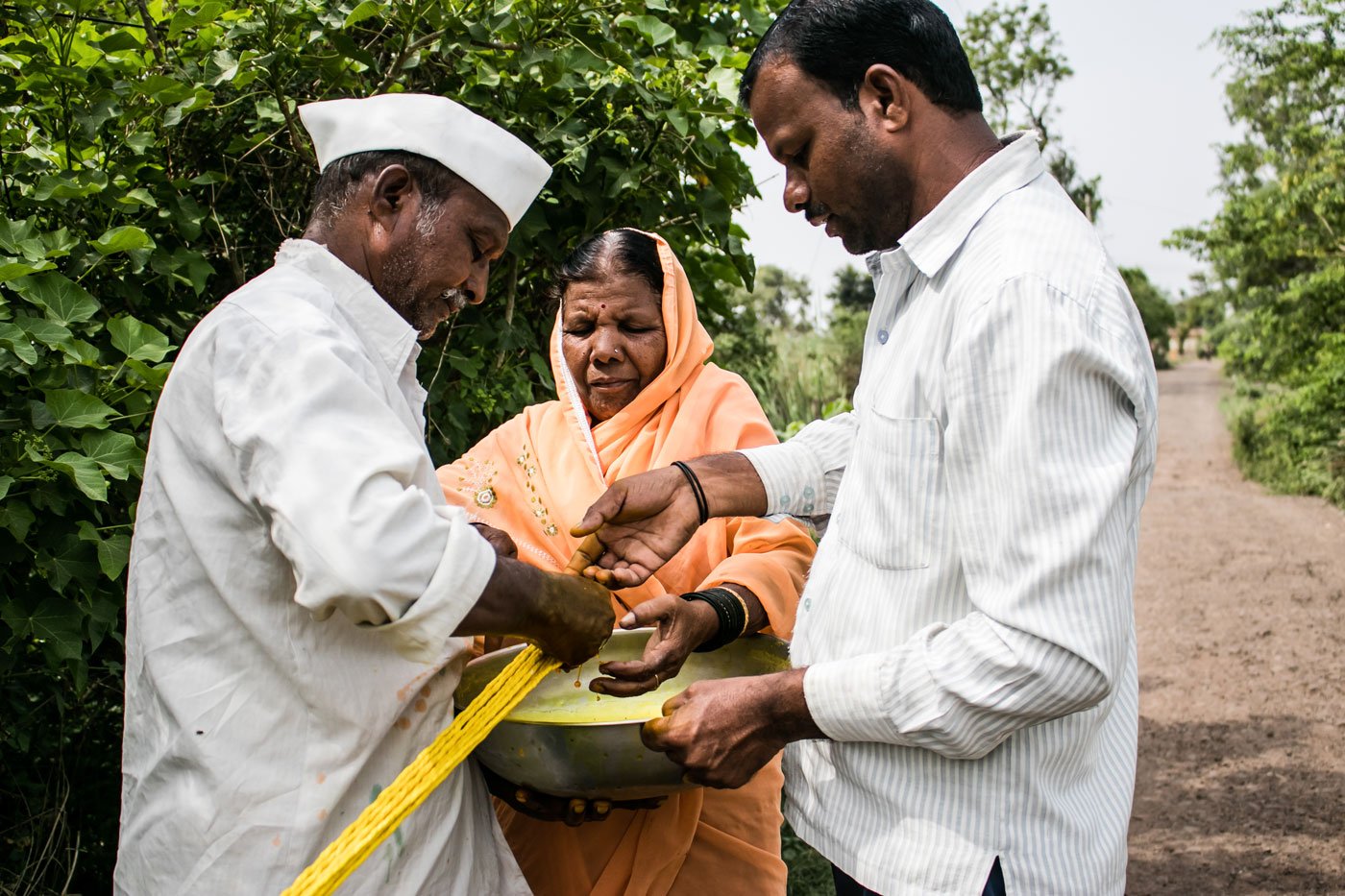
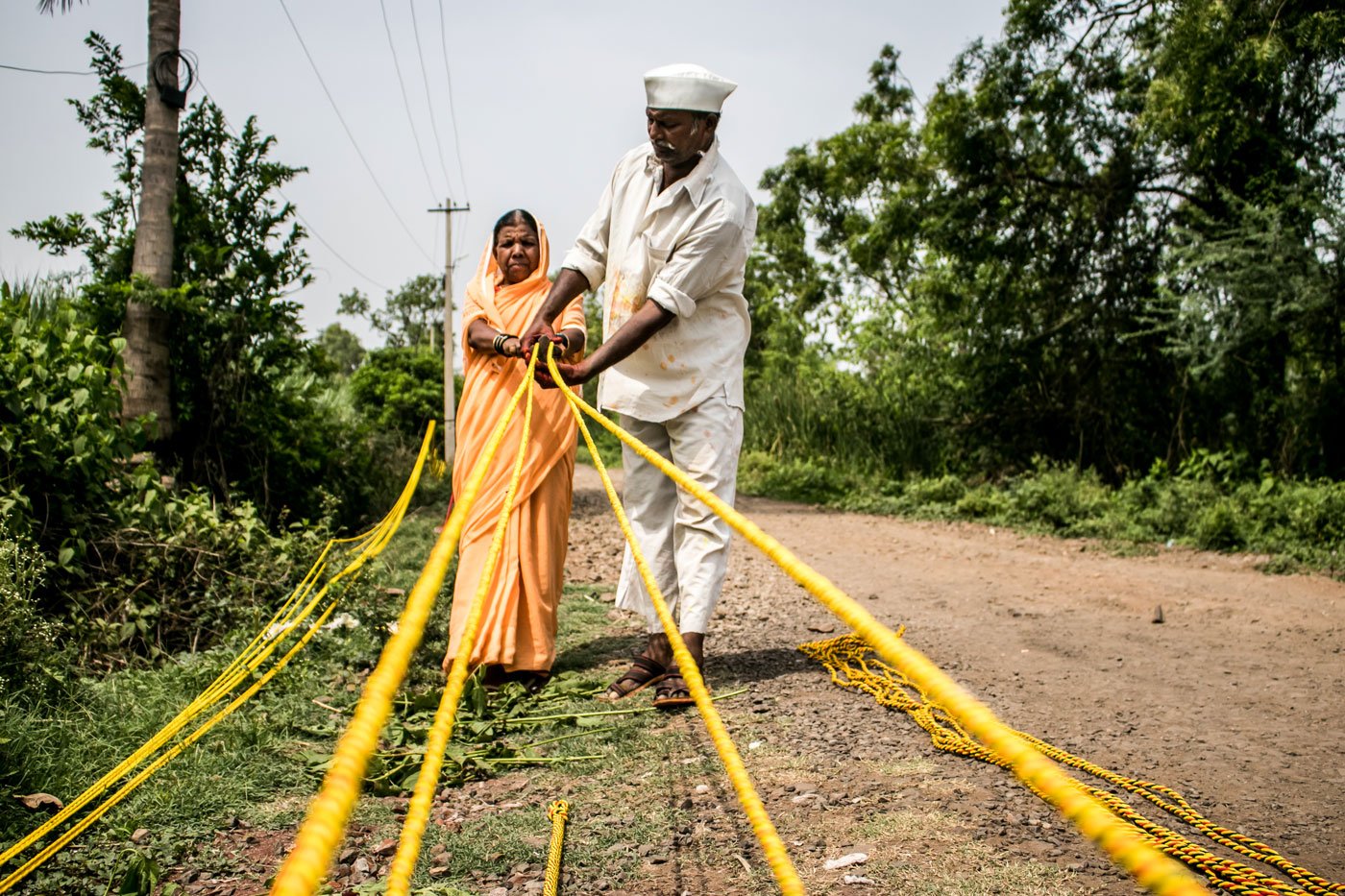
The Bhore family – Devu (wearing cap), Nandubai and Amit – craft ropes for farmers. There’s been no work now for weeks
Devu Bhore, soon to be 60, has been a ropemaker in Boragaon village of Karnataka’s Belgavi district for three decades. For five generations now, the Bhore family has kept alive the art of rope-making here. Under the lockdown, they’re more focused on staying alive themselves.
“We have most of the material [to make ropes]. We just need to start now,” Bhore’s son, Amit, 31, had told me on the phone on April 4. He was anxious, sensing an impending collapse in the farm economy. “From the first week of April,” he had said, “we have to start crafting ropes for Bendur.” That’s a festival dedicated to, and held in celebration of, bulls, usually between June and August.
The Bhores – who are Matangs, a Scheduled Caste community – craft two kinds of ropes for farmers. One is the 12-foot long kasra , that is bound to the plough. It’s also used to tie harvested crops in large bundles and, in some rural homes, to suspend an infant’s cradle from the ceiling. The other, a three-foot long rope called the kanda, is tied around a bull’s neck. They sell the kasra rope for Rs. 100 and a pair of kandas for as little as Rs. 50.
Amit’s anxiety was not misplaced. There’s been no work now for weeks. In pre-lockdown days, Devu, his wife Nandubai (in her 50s) and Amit would each earn around Rs. 100 a day for eight hours of work. Having missed out on over 350 hours of work during the lockdown, they estimate they have lost close to Rs. 13,000 so far, in this period.
This year, the Karnataki Bendur (the festival in Karnataka) is on June 7. Devu, Nandubai and Amit are struggling. The powdered colours they use – from Miraj town – cannot be obtained under lockdown. Also, their technique requires a straight 120-foot long stretch to be set up on the kutcha road outside their home. The entire process is done by hand – and would quickly draw police attention.
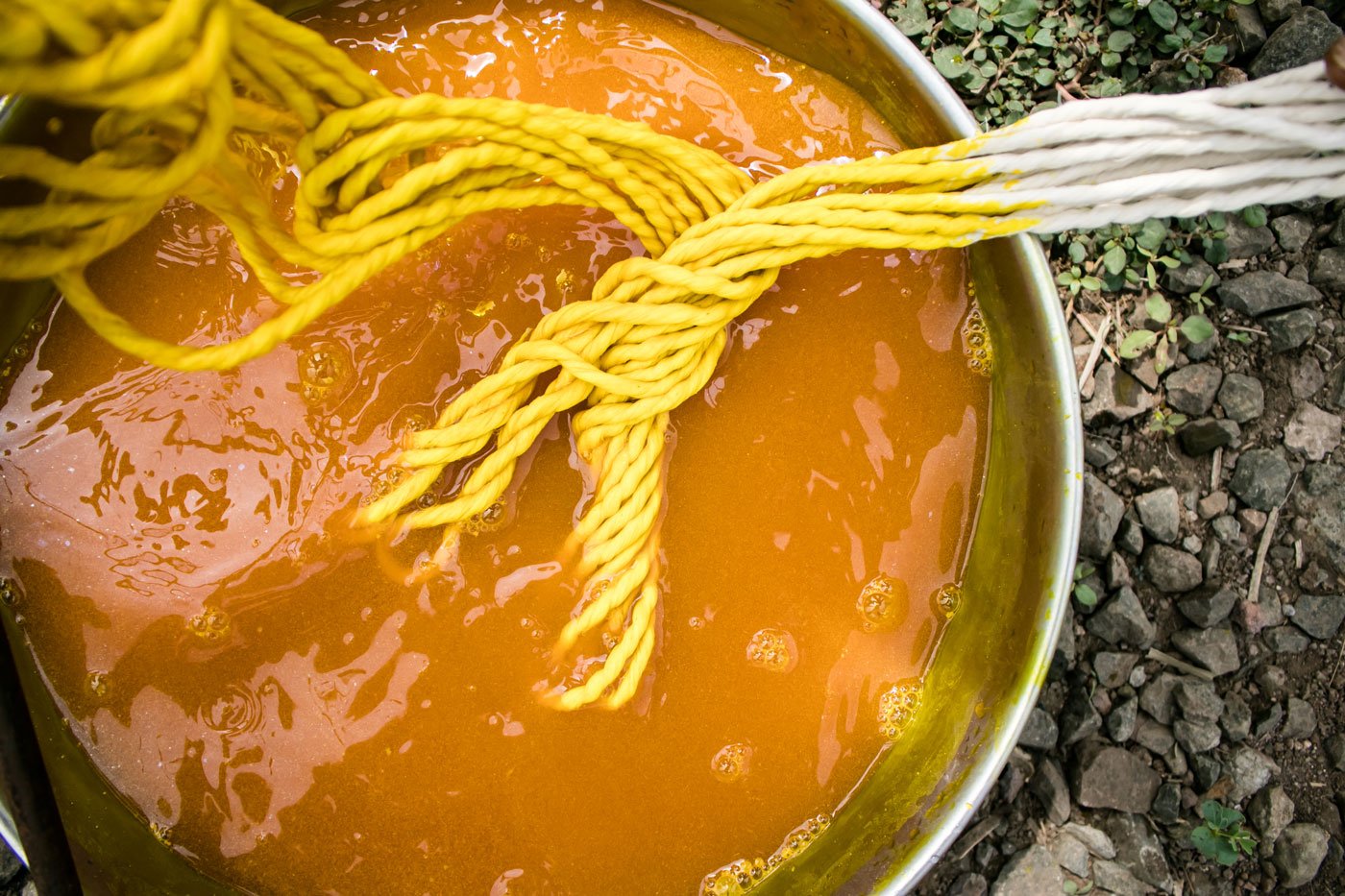
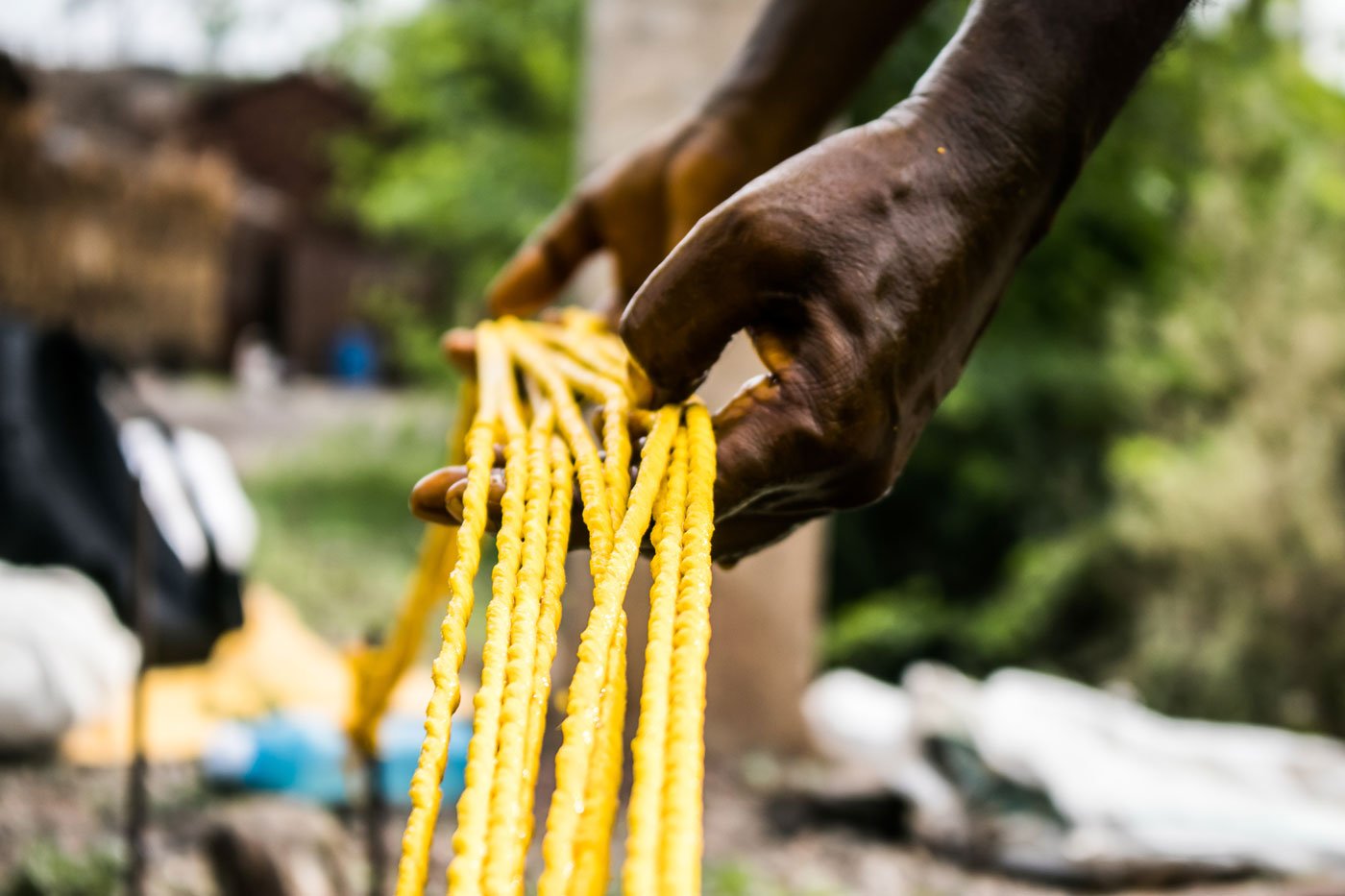
The powdered colours the Bhores use to make ropes for the Bendur festival in June, cannot be obtained from Miraj in the lockdown. 'Already we are late', says Amit
Even if they manage to make their ropes, problems remain. Several farmers buy kasra and kanda ropes during the Bendur. To sell these to them, Devu and Amit travel to the weekly markets of six different villages – Akkol, Bhoj, Galatga, Karadaga, and Soundalga in Karnataka, and Kurundvad in Maharashtra. A couple of days before the big occasion, says Amit, “we sell a lot of rope in Ichalkaranji town as well.”
This time, there is no guarantee at all that the Karnataki Bendur will be held on June 7, or if any of the others that are to follow it will actually happen. Which hurts them because it is in the Bendur season they make Rs. 15,000 from the sale of their hand-made rope. After that, the frequency of sale drops off quite a bit.
Devu and his three brothers jointly own an acre of land that they have leased to a tenant for Rs. 10,000 annually. But the family doubts the tenant will be in any position to pay the amount this year.
Meanwhile, the Bhores are unsure if any of the Bendurs will actually occur this year. And are living on the quickly diminishing Rs. 9,000 they collectively made in the month before the lockdown.
“Already we are late,” says Amit “and if the lockdown is extended further, we will earn nothing.”
